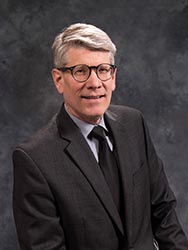Major Spotlight: Journalism
| Professor Stephen Ruf entered the Southern scene after 12 years working as an award-winning broadcast journalist in radio and TV. He just finished his semester-long sabbatical, where he used that time to report on the 2016 Louisiana floodings. He teaches Broadcast News Writing, TV News Reporting and Performance, and Introduction to Photography, among others. |  asdfasdfasdfasdfasdfasdfasdf asdfasdfasdfasdfasdfasdfasdf |
- What do you like the most about journalism?
I’m a naturally curious person. So when I discovered people would pay me to discover new things, meet new people, and find new places, I knew I had found my calling. Journalists are storytellers. And I’ve been doing that with pictures and sound since I was a kid.
- What is the one thing someone not familiar with the major would be surprised about?
A lot of people think a journalism major aims to get a job as a reporter or editor for a news organization. But that’s just scratching the surface on the kind of jobs available for our graduates. Corporations, non-profits, schools, and government are always looking for strong writers, multi-media producers, and social media managers. They like to hire journalism majors who can use their writing and multi-media skills to communicate accurately, concisely, and under a deadline.
- How can people combat “Fake News"?
We all need to become more discriminating news consumers. While “fair and balanced” reporting is a worthy goal, understand that no news organization can be completely bias free. I think a lot of people confuse opinion with straight news reporting. Take what the commentators and pundits say with a grain of salt.
How can you separate fact from fiction? Read the story, not just the headline. Cross check the story to see if other credible sources are reporting it. Social media platforms are starting to implement fact-checking algorithms, but I’m not sure technology can save us here. Finally, resist the urge to electronically share outlandish stories without checking sources and the story as a whole for alternate viewpoints.
- Why should an incoming college student take journalism?
Personally, I love being a journalist because every day is different and full of surprises. However, if you want a nine-to-five job, this career probably isn’t for you. A lot of people go into journalism to improve our world. Journalists help communities solve problems. Their informative stories hold the powerful accountable but also help find solutions by giving the voiceless a voice. We need more ethical Christian journalists who strive for objectivity, accuracy, and independence. Good journalism strives to be transparent. It is a sacred public trust, a vital civic function. Without journalists checking sources and verifying facts, we can’t have a strong, healthy democracy. That’s why the framers of the Constitution singled out news reporting as the only job in the Bill of Rights that’s protected.
To learn more about the School of Journalism and Communications, contact Professor Ruf at sruf@southern.edu or schedule an academic appointment through the Campus Visit office.
blog comments powered by Disqus